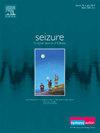十大癫痫研究重点:英国优先确定伙伴关系。
IF 2.7
3区 医学
Q2 CLINICAL NEUROLOGY
引用次数: 0
摘要
目的:与其他神经系统疾病相比,癫痫的研究经历了数十年的长期资金不足,尽管它很普遍且很严重。为了证明需要更多的投资,癫痫研究所(前英国癫痫研究所)资助、领导和管理了詹姆斯·林德联盟(JLA)优先确定伙伴关系(PSP)。这种“行业标准”方法将医疗保健专业人员、患者、护理人员和患者群体代表聚集在一起,以确定健康或护理确定领域内研究的不确定性并对其进行优先排序。方法:英国癫痫PSP是一代人一次的全国性共识,对英国癫痫及相关疾病社区的研究重点进行了整理和排名。遵循JLA的方法,这个为期18个月的项目吸引了来自英国各地的100多个患者群体和5000名受癫痫影响和从事癫痫工作的人,包括医生和相关医疗保健专业人员。结果:收到了5400多个优先事项,抗癫痫药物、癫痫猝死(SUDEP)和女性癫痫是最常报告的主题。收到的回复被分类并转化为不同的、可研究的问题。如果在证据检查后被认为“回答”的问题被排除,而研究的不确定性(即未回答和部分回答的问题)构成了第二次入围调查的基础。在最后的研讨会上,广泛代表英国癫痫和相关疾病社区的参与者对入围问题进行了讨论和辩论。随后就癫痫研究的最终排名和十大优先事项达成一致。结论:英国癫痫PSP的目的是鼓励和激励研究人员调查受癫痫影响最大的人群优先考虑的研究领域,并提供必要的证据,以帮助未来的政策制定讨论和支持研究经费申请。本文章由计算机程序翻译,如有差异,请以英文原文为准。
Top Ten epilepsy research priorities: A UK priority setting partnership
Purpose
Research into epilepsy has experienced decades of chronic underfunding compared to other neurological conditions despite its prevalence and seriousness. To evidence the need for greater investment, the Epilepsy Research Institute (formerly Epilepsy Research UK) funded, led and managed a James Lind Alliance (JLA) Priority Setting Partnership (PSP). This “industry standard” methodology brings together healthcare professionals, patients, carers and patient group representatives to identify and prioritise research uncertainties within a defined area of health or care.
Methods
The UK Epilepsy PSP is a once-in-a-generation, national consensus that collated and ranked the research priorities of the UK epilepsy and associated condition community. Following JLA methodology, this 18-month project engaged over 100 patient groups and 5000 people affected by and working in epilepsy, including medics and allied healthcare professionals, from across the UK.
Results
Over 5400 priorities were received, with anti-seizure medication, sudden unexpected death in epilepsy (SUDEP) and epilepsy in women among the most frequently reported themes. The responses received were categorised and translated into distinct, researchable questions. Questions were excluded if deemed to be “answered” following an evidence check, while research uncertainties (i.e. unanswered and partially answered questions) formed the basis of a second, shortlisting survey. The shortlisted questions were then discussed and debated at the final workshop by participants that broadly represented the UK epilepsy and associated condition community. The final ranking and Top Ten priorities for research into epilepsy were then agreed.
Conclusion
The aim of the UK Epilepsy PSP is to encourage and inspire researchers to investigate the research areas prioritised by those most affected by the condition and provide the evidence of need to aid future policy making discussions and support research funding applications.
求助全文
通过发布文献求助,成功后即可免费获取论文全文。
去求助
来源期刊

Seizure-European Journal of Epilepsy
医学-临床神经学
CiteScore
5.60
自引率
6.70%
发文量
231
审稿时长
34 days
期刊介绍:
Seizure - European Journal of Epilepsy is an international journal owned by Epilepsy Action (the largest member led epilepsy organisation in the UK). It provides a forum for papers on all topics related to epilepsy and seizure disorders.
 求助内容:
求助内容: 应助结果提醒方式:
应助结果提醒方式:


